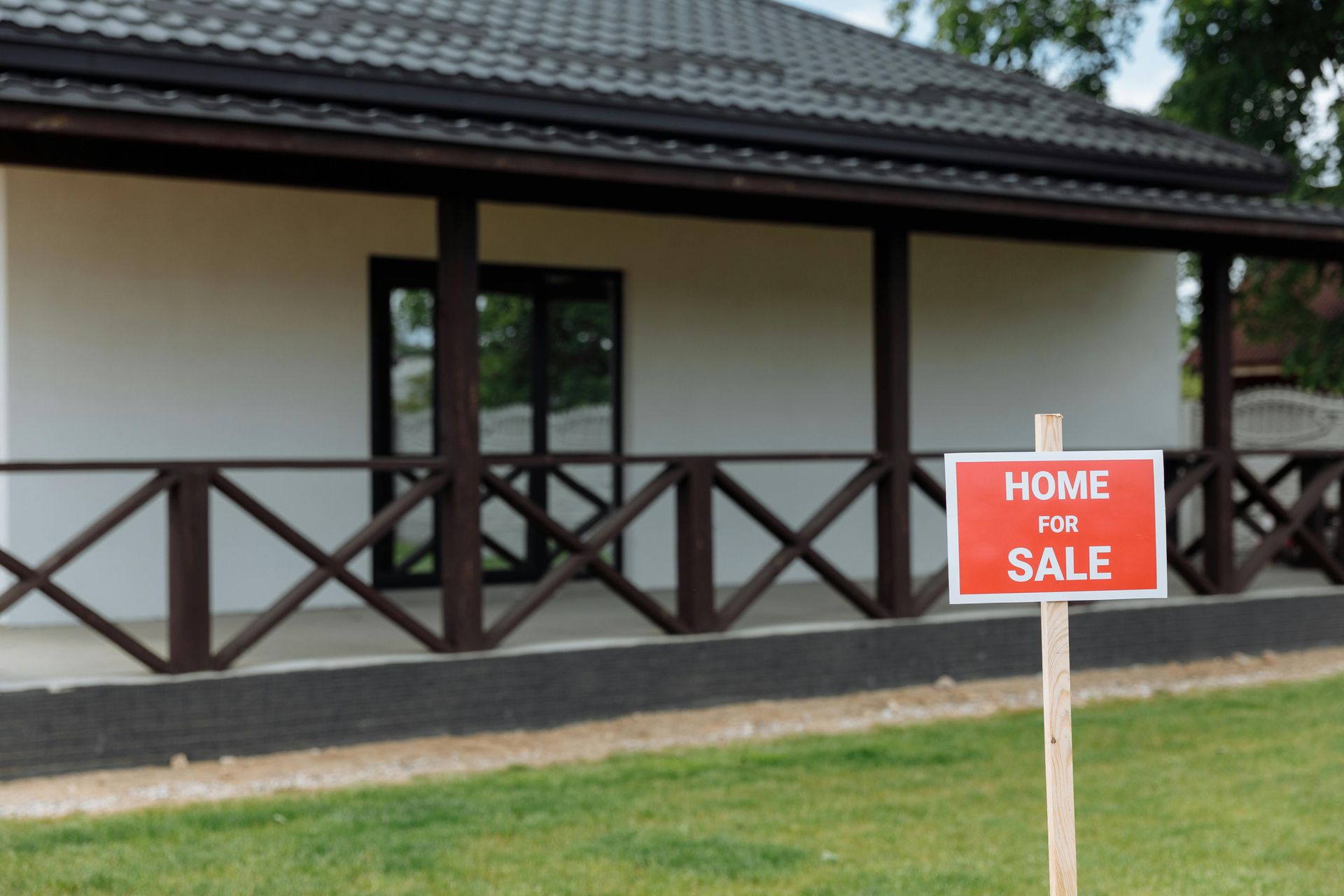2025 Legislative Session Wrap-up
2025 Regular Legislative Session Wrap-up
The 2025 Louisiana Legislative Session adjourned on Thursday, June 12. Your Louisiana REALTORS® advocacy team was very active and successful during the 60-day legislative session. Your volunteer leadership and staff worked with state legislators on several real estate industry related issues. Legislators debated and voted on many issues including, but not limited to:
- State/local taxes
- Homestead exemption
- Blighted property
- Property and auto insurance reform / tort reform
- Contractor Licensing Board and Code Council
- Property management
Louisiana REALTORS® was able to produce positive outcomes on the following legislative items:
PROPERTY INSURANCE AND FORTIFIED HOMES
HB 121 by Rep. Roy Daryl Adams, D-Jackson:
HB 121 provides prohibitions relative to public adjusters and home improvement contractors.
- Prohibits adjusters from doing repair work on homes they review for repairs.
- LR supported this bill and was signed into law by the Governor and is now Act 144, effective August 1st.
HB 122 by Rep. Stephanie Berault, R-Slidell and Rep. Tehmi Chassion, D-Lafayette:
HB 122 creates the Louisiana Roof Registry through the Department of Insurance.
- This registry will include a list of all roofs that are certified as Fortified.
- LR supported this bill and was signed by Governor and is Act 62, effective August 1st.
HB 145 by Rep. Roger Wilder III, R-Denham Springs:
HB 145 supported by LR, increases the tax deduction amount allowed to no more than $10,000 for upgrading a home to the state uniform construction code and fortified standards.
- The bill increases the maximum amount of the construction code retrofitting deduction and expands the deduction to cover costs associated with "fortified home" standards compliance.
- The bill limits the amount of the deduction to 50% of the costs paid or incurred to retrofit a residential structure or $5,000, whichever is less.
- It retains the 50% limit on the costs paid or incurred but increases the maximum amount of the deduction from $5,000 to $10,000 per retrofitted residential structure.
- HB 145 was signed by the Governor on June 20, and becomes Act 473, effective January 1, 2026.
HB 329 by Rep. Troy Hebert, R-Lafayette:
HB 329 provides for the disposition of proceeds from certain taxes and fees collected by the Department of Insurance. The new law establishes a permanent funding source for the Louisiana Fortify Homes Program. The bill had eight co-authors and was signed by the Governor. Act 79 is effective July 1, 2026.
- The first $5 million collected from surplus lines tax dollars (surplus lines tax on all non-admitted lines of business written in Louisiana is 4.85% of base premium) will fund the Louisiana Fortify Homes Program.
- Increases specified LDI licensing fees (by $15) for dedication to the Louisiana Fortified Homes Program from each of the following: first-time applicant fee, application to add lines fee, renewal company appointment or individual fee for one line, and each producer renewal fee for two or more lines; each public adjuster license fee for business entities, residents and non-residents.
HR 341 by Rep. Beau Beaullieu, R-New Iberia:
HR 341 requests the Louisiana Department of Insurance to conduct a comprehensive study on incentives and standard benchmarks for integration into the Louisiana Fortify Homes Program. The resolution passed.
HB 345 by Rep. John Wyble, R-Franklinton:
HB 345 provides for notices relative to residential property insurance. LR was in support of this bill.
- Amends Policyholder Bill of Rights, requiring carriers to notify policyholders of written intent to non-renew at least 60 days in advance, amended from 30 days, except for nonpayment of premium. Applicable to personal lines. (Commercial lines is already 60 days)
- Also affords a limited grace period for surviving spouse to 60 days.
- The insurer shall include in the notice the cause for which the insurer is failing to renew the policy.
- HB 345 had four co-authors, was signed by the Governor and is Act 182, effective July 1, 2026.
HB 356 by Rep. Jacob Braud, R-Belle Chasse:
HB 356 creates the Stated Value Homeowner's Policy Act, which allows insurers to offer a stated value policy option to homeowners, providing insurance coverage based on a stated value of the residential property as declared by the homeowner, rather than solely on the market value of the property.
- The bill authorizes a homeowner's agent to request a stated value policy on behalf of the homeowner. The proposed law requires homeowners electing a stated value policy to submit to insurers a written payoff statement from the financial institution or other entity holding a mortgage on the property to accurately reflect the outstanding balance or nature of the mortgage on the property at the time of applying for or renewing the insurance policy.
- It further requires homeowners to provide a mortgage certificate from the clerk of court indicating the presence or absence of a mortgage on the property.
- The bill also adds limitations on liability for assessors or their employees for performing or failing to perform their duties.
- The House voted 82-12 to concur in the Senate amendments, sending the bill to the Governor’s desk for his signature. There are 46 co-authors.
- This Act shall become effective upon signature by the governor or, if not signed by the governor, upon expiration of the time for bills to become law without signature by the governor, as provided by Article III, Section 18 of the Constitution of Louisiana. If vetoed by the governor and subsequently approved by the legislature, this Act shall become effective on the day following such approval.
- HB 356 was signed by the Governor on June 30, and becomes Act 480, effective June 30, 2025.
SB 28 by Sen Kirk Talbot, R-River Ridge:
SB 28 would create a state income tax credit of up to $10,000 for homeowners who install storm-resistant roofs that meet fortified standards set by the Insurance Institute for Business and Home Safety.
- The goal is to encourage upgrades that could reduce hurricane damage and potentially lower insurance premiums.
- The credit would be available to owner-occupied homes with a homestead exemption, excluding new construction, mobile homes and condominiums.
- It would apply to qualifying expenses incurred on or after July 1, 2025, and is nonrefundable, though unused portions could be carried forward for up to three years.
- The program is capped at $10 million in credits per year and would sunset after December 31, 2031.
- LR was in support of this bill, which had five co-authors.
- The bill was signed by the Governor and is now Act 404, effective June 20, 2025.
SB 52 by Sen. Patrick McMath, R-Covington:
SB 52 provides an individual income tax exemption for grants from the Louisiana Fortify Homes Program. LR supported this bill, which had nine co-authors. It was signed by the Governor, is now Act 32, and is immediately effective.
- Grant amounts received on or after January 1, 2025, shall be exempt from inclusion in the recipient's taxable income for purposes of state individual income tax as provided in R.S. 47:293(9)(a)(xxvii).
SB 136 by Sen Kirk Talbot, R-River Ridge:
SB 136 by Sen. Talbot would require insurers to provide personalized rate transparency reports to consumers when offering or renewing homeowners and auto insurance policies.
- The reports would break down premium costs by key categories such as reinsurance, claims, commissions and profits, and would have to be written in clear, easy-to-understand language.
- The bill was signed by the Governor and is now Act 428, effective January 1, 2026.
SB 137 by Sen Kirk Talbot, R-River Ridge:
SB 137 by Sen. Talbot would require property and auto insurers to notify the state insurance commissioner within 10 days if they decide to pause, stop or resume writing new policies in any geographic area of the state.
- Insurers must disclose the effective date, the lines of insurance affected, the area impacted and a brief explanation for the action.
- While the notifications would be confidential and not subject to Louisiana’s public records law, the bill gives regulators more visibility into market shifts that have left some homeowners scrambling for coverage in recent years.
- The new reporting rule does not apply to short-term pauses tied to incoming natural disasters like hurricanes.
The Louisiana Department of Insurance will oversee the implementation and can issue rules to enforce the law. The bill was signed by the Governor and becomes Act 429. It is effective January 1, 2026.
REAL ESTATE
HB 6 by Rep. Stephen Jackson, D-Shreveport:
HB 6 sought to criminalize owners of rental properties that receive payments in full, from tenants for utility services in which the owner knowingly fails to pay the utility bill.
- LR was able to place amendments onto the legislation giving the owner 60 days to rectify the oversight and does not apply to failed payments due to honest mistakes.
- HB 6 seeks to go after the party responsible for paying the bill.
- This legislation also states it does not apply in a situation where a tenant fails to pay the owner or property manager for their utility payment.
- HB 6 has been signed by the Governor and becomes Act 231, effective August 1st.
HB 139 by Rep. Shane Mack, R-Livingston:
HB 139 was opposed by LR because parts of the legislation conflicted with the settlement terms of the National Association of REALTORS® lawsuit.
- HB 139 contained added additional language on real estate advertising that was vague and ambiguous.
- Finally, HB 139 would have limited contractual freedom.
- HB 139 was deferred in the House Commerce Committee in April and was not brought up again for consideration.
HB 256 by Rep. Dixon McMakin, R-Baton Rouge:
HB 256 changes the terms of the Louisiana Real Estate Commission members from one (1) six-year term to two (2) four-year terms.
- LR supported the LREC on this legislation, which had two co-authors.
- SB 256 has been signed by the Governor and becomes Act 256, effective June 11, 2025
HB 288 by Rep. Delisha Boyd, D-New Orleans:
HB 288 brought the Louisiana Real Estate Appraisal Board in line with new national standards required for the appraisal industry.
- LR supported this legislation.
- HB 288 has been signed by the Governor and becomes Act 263, effective January 1, 2026.
HB 300 by Rep. Shane Mack, R-Livingston:
HB 300, a Constitutional Amendment, increases the income threshold for purposes of qualifying for the special assessment level.
- The constitutional amendment will be on the statewide ballot on November 3, 2026.
- The proposition will read, “Do you support an amendment to increase the maximum amount of income a person may receive and still qualify for the special assessment level for residential property receiving the homestead exemption?”
- If successful on the statewide ballot, it will be effective January 1, 2027.
- Sent to the Secretary of State as Act 220.
HB 512 by Rep. Tammy Phelps, D-Shreveport:
HB 512 would have created a criminal penalty for real estate agents and property managers if the owner of the property did not comply with or correct their blighted property with the municipality.
- LR offered an amendment to exempt agents and property managers from this legislation.
- The bill failed to pass the House of Representatives before adjournment.
HB 578 by Rep. Julie Emerson. R-Carencro:
HB 578 dealt with sales tax issues.
- LR was not able to get an MLS exemption from this tax; however, LR was successful in having the local sales tax rate applied to all members in the parish where the local association is located.
- HB 578 has been signed by the Governor and becomes Act 384, effective June 20, 2025.
AUTO INSURANCE / TORT REFORM
Key pieces of legal reform legislation intended to reduce the costs of automotive insurance and reduce the number of frivolous lawsuits have been signed by the Governor:
HB 148 by Rep. Jeff Wiley, R-Gonzales:
HB 148 became Act 11.
- The bill, supported by the Governor and opposed by the insurance commissioner, gives the insurance commissioner more latitude to reject rate increases deemed to lead to “unreasonably” high profits.
- Sen. Kirk Talbot, R-River Ridge, amended the bill to return actuarial guardrails.
HB 431 by Rep. Emily Chenevert, R-Baton Rouge:
HB 431 became Act 15.
- This is the comparative fault legislation that changes Louisiana’s system so that individuals found to be primarily responsible for their own injury (51% or more at fault) are no longer eligible to collect damages from others.
- This shift from pure comparative fault to modified comparative fault aligns Louisiana with most of the country and helps reduce unfair liability.
- The bill has 40 co-authors.
HB 434 by Rep. Jason Dewitt, R-Tioga:
HB 434 became Act 16.
- This legislation is the expansion of “No Pay, No Play,” which increases the minimum amount of damages an uninsured driver must suffer before they can seek compensation from another party.
- This change encourages drivers to maintain insurance coverage and helps reduce unnecessary claims.
- The bill has 32 co-authors.
HB 436 by Rep. Gabe Firment, R-Pollock:
HB 436 became Act 17.
- The legislation deals with immigration status and damages, and limits the ability of individuals who are not lawfully present in the United States to recover certain types of damages in civil lawsuits.
HB 450 by Rep. Michael Melerine, R-Shreveport:
HB 450 became Act 18.
- This legislation repeals the Housely Presumption, which infers an injury is automatically caused by an accident unless proven otherwise.
- This shifts the burden back to plaintiffs to show a clear connection between an incident and the injury being claimed.
- The bill has 47 co-authors and was effective May 28, 2025.
SB 231 by Sen. Mike Reese, R-Leesville:
SB 231 by Sen. Mike Reese, R-Leesville, addresses the evidentiary aspect of medical expenses paid by insurance, limiting damage awards to the amount actually paid.
- The bill would allow judges and juries to see evidence of both billed and paid amounts, but limit recovery to only what was actually paid in cases where private insurance and Medicare are used.
- The House amended the bill to remove the language subjecting Medicaid and workers’ compensation claims into the evidentiary changes.
- The author concurred in House amendments.
- SB 231 was signed by the Governor on June 30, and becomes Act 466, effective January 1, 2026.
OTHER LEGISLATION
HB 519 by Rep. Brian Glorioso, R-Slidell:
HB 519 prohibits the use of a wireless telecommunication device while operating a motor vehicle. LR opposed this bill, which has been introduced many times in past legislative sessions. Provides relative to the operation of a motor vehicle while using a wireless telecommunication device.
- Defines: autonomous vehicle, hands-free wireless telephone, lawfully stationary, motor vehicle, wireless telecommunications device.
- "Lawfully stationary" means any motor vehicle that has stopped, is in park or neutral, or is standing while in gear and not moving, while also in a travel lane or on the shoulder of a public road or highway, including when such action is necessary to observe or avoid conflict with traffic or in compliance with the directions of law enforcement or a traffic control device or signal.
- "Wireless telecommunications device" means a cellular telephone, a text messaging device, a personal digital assistant, a stand-alone computer or other electronic device, or any other substantially similar portable wireless device that is readily removable from the vehicle and is used to write, send, or read text or data through manual input.
- The term "wireless telecommunications device" shall not mean any device or component that is permanently affixed to a motor vehicle, or a device used hands-free.
- The bill had 11 co-authors. The bill has been signed by the Governor and becomes Act 288; before January 1, 2026, law enforcement shall only issue a written warning.





